Shravan Krushna Dashmi 5111
Get back the held on money along with the interest from the parties through the temple take over act! (Editor- Dainik Sanatan Prabhat)
The judgement passed on for Karanataka State should also be made obscure for Maharashtra State! The court objects the temple funds granted to the other religious institutions, now the substantiation on funds of the temple in Maharashtra should also be made! (Editor- Dainik Sanatan Prabhat)
Bangalore(Karnataka): Private temples needn’t fear intrusion by the government now. In a judgment that brings relief to hundreds of private temples in Karnataka, the Supreme Court on Friday modified the stay order of April 2, 2007 with respect to the Karnataka Hindu Charitable Institutions and Charitable Endowments Act.
This means Karnataka cannot take over of temples or appoint any committee to govern them. The state, following the stay, was issuing notices to take over the management under Section 25 of the Act.
Advocate G S Kannur said Section 25 isn’t applicable to Sikh, Jain or Buddhist temples and, therefore, discriminatory. A long-drawn debate The Question Of Govt Managing Private Temples Has Engaged Court For Years
Should governments manage howsoever remotely private temples? This question has been engaging courts for a while now.
In 2006, the Karnataka high court division Bench headed by Justice R Gururajan had quashed the entire Karnataka Hindu Charitable Institutions and Charitable Endowments Act. This followed an appeal by Hindu temples, trustees, archaks and others aggrieved by the HC judgment of September 9, 2005, which upheld the Act.
The Bench had noted that the Act is violative of the right to equality under Article 14 as it discriminates between temples and mutts and mutt-run
temples. Mutts are not included in the Act.
Devotees of Hindu temples provide kanike (offerings) for temple purposes and it cannot be spent for other non-Hindu causes without any relevance to Hindus.
The Bench had objected to the government spending 5% of the temple turnover money for other purposes. Money is taken out of Hindu temples to provide for poor institutions
of other religions. The Gururajan Bench had objected to this provision by specifying that there can be no compulsion only from Hindu temples to provide assistance to such institutions. Such contribution cannot be compulsory.
The apex court in 2007 had granted a stay on the Gururajan Bench order and the state had been issuing notices to take over temple management.
Source: [email protected] (Report by TIMES NEWS NETWORK )
New Delhi: The Supreme Court on Friday directed that the Karnataka government may not take over the management of any temple in the State under a law enacted in 1997.
A Bench headed by Justice R V Raveendran stayed Section 25 of the Karnataka Hindu Religious Institutions and Charitable Endowments Act, 1997, that permitted the State Government to take over the management of temples. “Section 25 of the Act is stayed,’’ the Bench said after the State Government failed to defend itself with reasoned arguments.
Appearing for Udupi and Dakshina Kannada Temples Management Association, senior advocate K K Venugopal and advocate Sharan Thakur sought direction restraining the State Government from taking over the management of temples. State Government advocate Sanjay Hegde said the Supreme Court had earlier stayed the Karnataka High Court ruling.
“If committees are constituted under the 1997 Act, the applicants will be put in irreparable injury and hardship,’’ said a petition filed by the Sahasra Lingeswar temple and others.
In September 2006, a Karnataka High Court Division Bench comprising Justices Gururajan and C R Kumaraswamy struck down the entire Act as unconstitutional. The Bench stated it was arbitrary and violative of Articles 14, 25 and 26 of the Constitution. However, the Supreme Court stayed the High Court order on April 2, 2007, following a special leave petition (SLP) by the State Government.
The State Government’s argument was two-fold: protecting the livelihood of 70,000 priests and managing hundreds of temples and trusts.
These issues were at the centre of a controversy between the temples and the state government ever since the Act came into being.
The State Government had submitted that a high-powered committee headed by Justice M Rama Jois had been formed to look into the grievances of the priests and other office bearers of the temples.
The priests and temple trusts challenged the Act in the High Court, claiming it was discriminatory and not uniformly applicable to all religious institutions, including mutts.
The State Government had issued notices to over 200 temples in North Karnataka, including the Banashankari temple in Badami, Veerabhadreshwara temple at Godachi in Raibagh taluk of Belgaum district and the Hanuman temple in Haveri, informing them about the appointment of committees that would recommend taking over their management.
Source: DH News Service
Also See
 |
Temple Takeover ActThe donations from the devotees are being misused as per the whims and fancies of the trustees and Government. Millions of rupees are siphoned of into companies owned by Ministers, for their use |
 |
Anti faith bill Maharashtra (India) government is about to pass an anti hindu bill. This draconian law that allows govt. to arrest without bail and initiate criminal proceedings against devotees and saints.heir use |

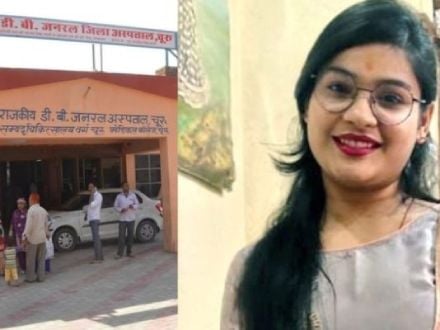 Rajasthan: Woman found hanging at a beauty parlour, Arshad, 3 others booked
Rajasthan: Woman found hanging at a beauty parlour, Arshad, 3 others booked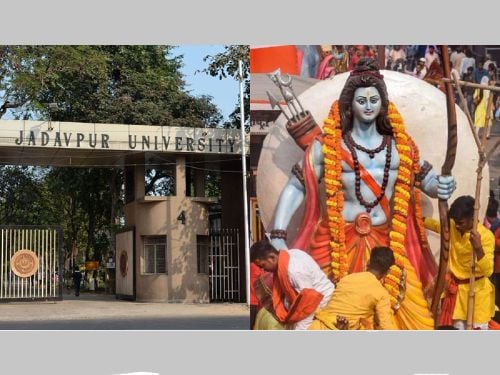 Jadavpur Univ revokes permission to celebrate Ram Navami on campus after granting it
Jadavpur Univ revokes permission to celebrate Ram Navami on campus after granting it Andhra Pradesh: Farooq kills mentally challenged Hindu man for insurance money
Andhra Pradesh: Farooq kills mentally challenged Hindu man for insurance money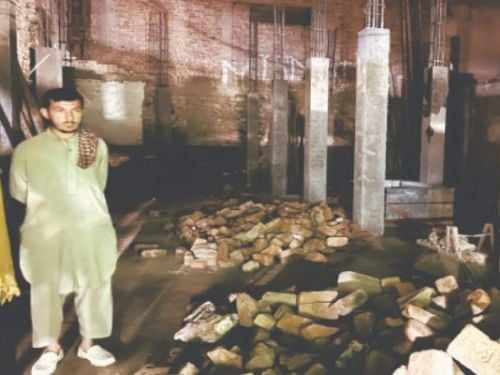 Pakistan: Ancient Hindu temple in Khyber Pakhtunkhwa demolished for commercial complex
Pakistan: Ancient Hindu temple in Khyber Pakhtunkhwa demolished for commercial complex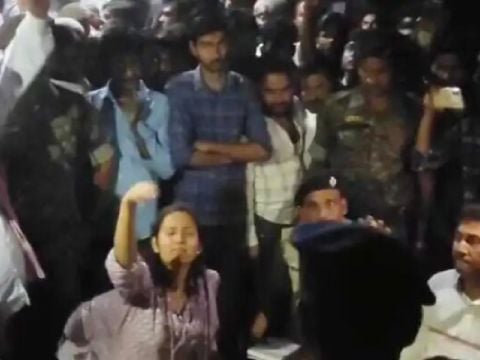 Bihar: Goddess Bhagavati Temple in Araria vandalised and deities damaged
Bihar: Goddess Bhagavati Temple in Araria vandalised and deities damaged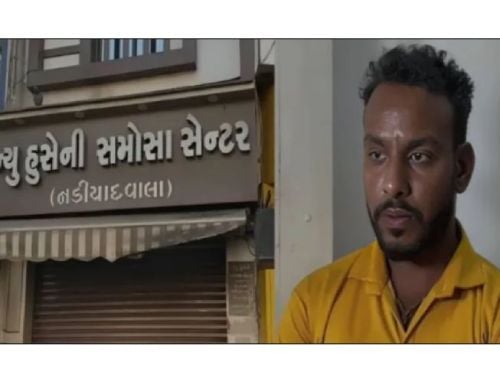 Vadodara: Beef supplier Imran Qureshi arrested in beef-stuffed samosa case
Vadodara: Beef supplier Imran Qureshi arrested in beef-stuffed samosa case